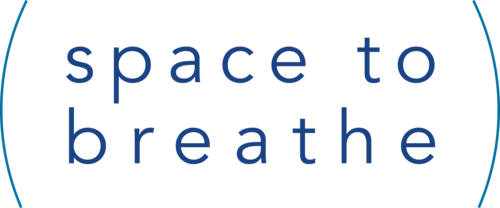REMEMBERING WELL
When we lose something or someone precious, it leaves a hole. Even after years and years we can still have fond memories and pangs of loss.
Across the board of thinking and writing on theme of loss, one thing is clearer than most - that healthy loss involves facing slowly all the emotions and feelings that come with separation and eventually, we seek to find ways of remembering well.
This month we want to tackle this subject gently and with tenderness.
I want to say at the outset we won’t be forcing you to confront anything you’re not ready for. If you ever want to talk we are here - make use of our Wellbeing Check-Ins for a chat or for some advice. You can email us at info@spacetobreatheuk.com to know more. Ultimately we want to make space for you to build your wellbeing by remembering well.
We want to give you space to create the focus of your remembering. Lost roles, lost objects, lost time or friendships are often just as important to remember as the more traditional way we think of remembering. Our aim is to help each of us use this month to remember with fondness, taking our memories into the future healthily and with contentment.
It’s ok to remember
Today I’d like to simply consider that it’s ok to remember.
We are storied-creatures. Our world and the way we see it is made up of our experiences, including our memories. These stories include the teacher who believed in us, the place we grew up, the experiences we had and the good and the bad of everyday life. These things help to make us.
There is often a debate about whether who we are is made by nature or nurture. However, it’s rare for someone to suggest that there is only one element of either nature or nurture. Both our DNA and our experiences go into the melting pot of personality.
Throughout the history of human life, stories have played there part.
Ancient peoples told stories of their history in verbal form, often passing knowledge from generation-to-generation in oral form. In many settings these national stories were only written down centuries after they’d be first told by local elders. Remembering formed a key part of identity - this is what happened, this is our story.
Imaginative stories also help shape us. CS Lewis argued that "reason is the natural order of truth; but imagination is the organ of meaning.[1]” Many stories which may or may not be historical in nature, include great truths which are of value.
Today our culture is encouraging people to tell their stories, self-publishing through the internet or telling daily short stories through social networking sites. “Storytelling has a powerful unifying power - it highlights commonalities among individuals and breaks down prejudices.[2]”
For us remembering well might begin with our story - what has happened to us. What has shaped us to this point? Who are the leading characters? What events have we experienced?
creating your own story
As we begin our journey of remembering well, I’d like to propose an exercise that affirms that it’s ok for you to remember your past as you look forward to your future.
“Why not take some time to write down, draw or mind-map your own story.
Think about the key events, places and people.
Try and put it together as if you were telling someone else the story.
Imagine them asking “how did you get to this place at this time?”
You can start where you like and shape it in whatever way you like.
When you’ve finished take some time to reflect. What impact has your story had on you? How might you remember this story well and in a healthy way?
”
REMEMBERING MATTERS
William Worden made a change to his famous book ‘Grief Counselling and Grief Therapy’ when he wrote an update edition. He had originally suggested that a key task in mourning or remembering was to re-invent a relationship with that thing, place or person who might be missing. In his 2nd edition he changed that to finding “a place” for that which is loss.
Healthy remembering doesn’t encourage you to give up a relationship with what you’ve lost but instead to find a healthy and appropriate place for it and for its memories in your future.
Remembering well becomes good for us.
Good remembering doesn’t mean that we dwell in the past or get trapped by it. Instead we can take our stories and walk into our future with confidence. Being more self aware and knowing more of who we are.
Let us know how you get on with this story exercise and take care.
[1] http://famouspoetsandpoems.com/poets/c__s__lewis/quotes
[2] BOUMAN, Jake ‘An Examination of Postmodern Youth Culture in conversation with the Emerging Church’ www.precipicemagazine.com

